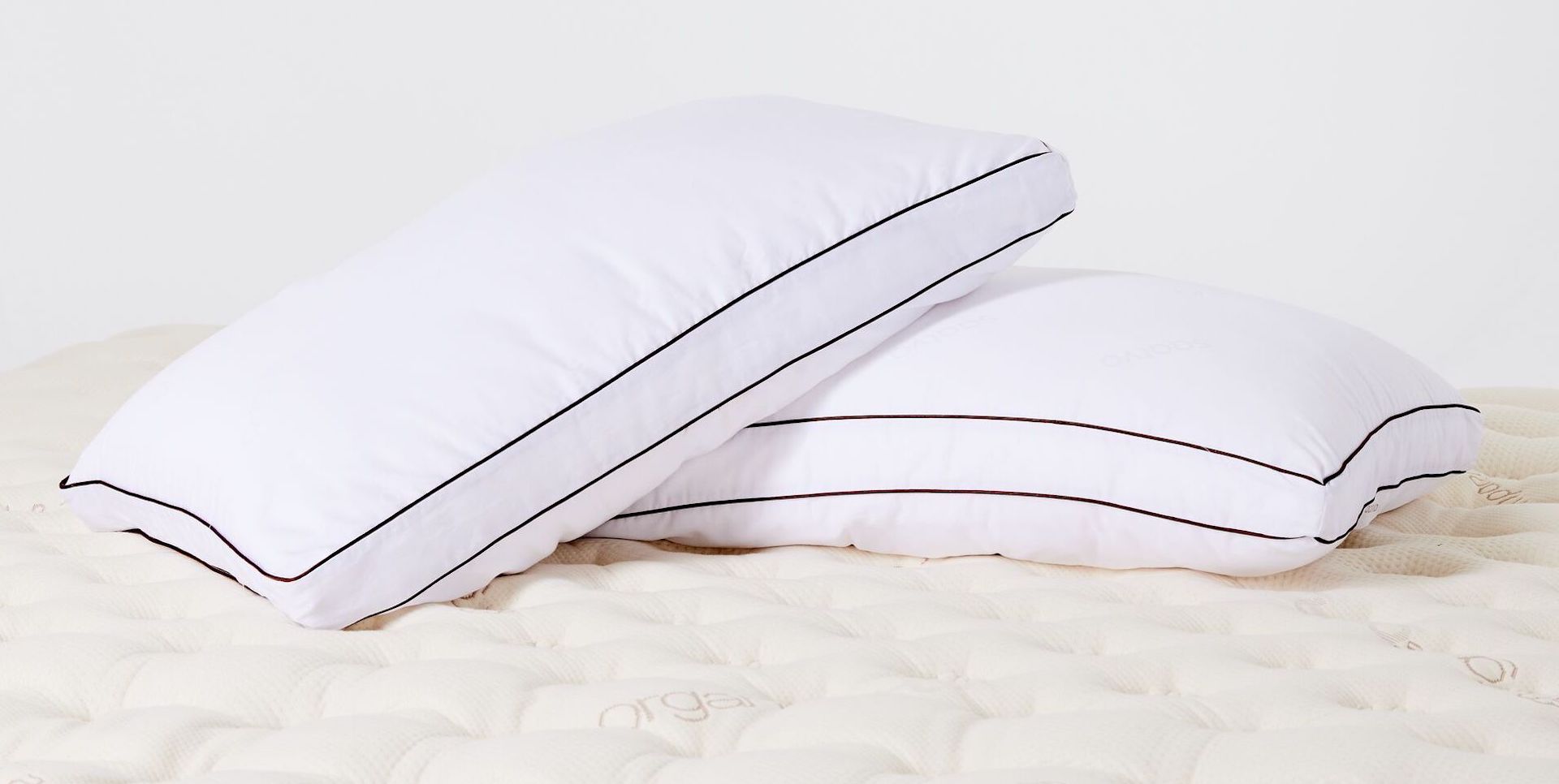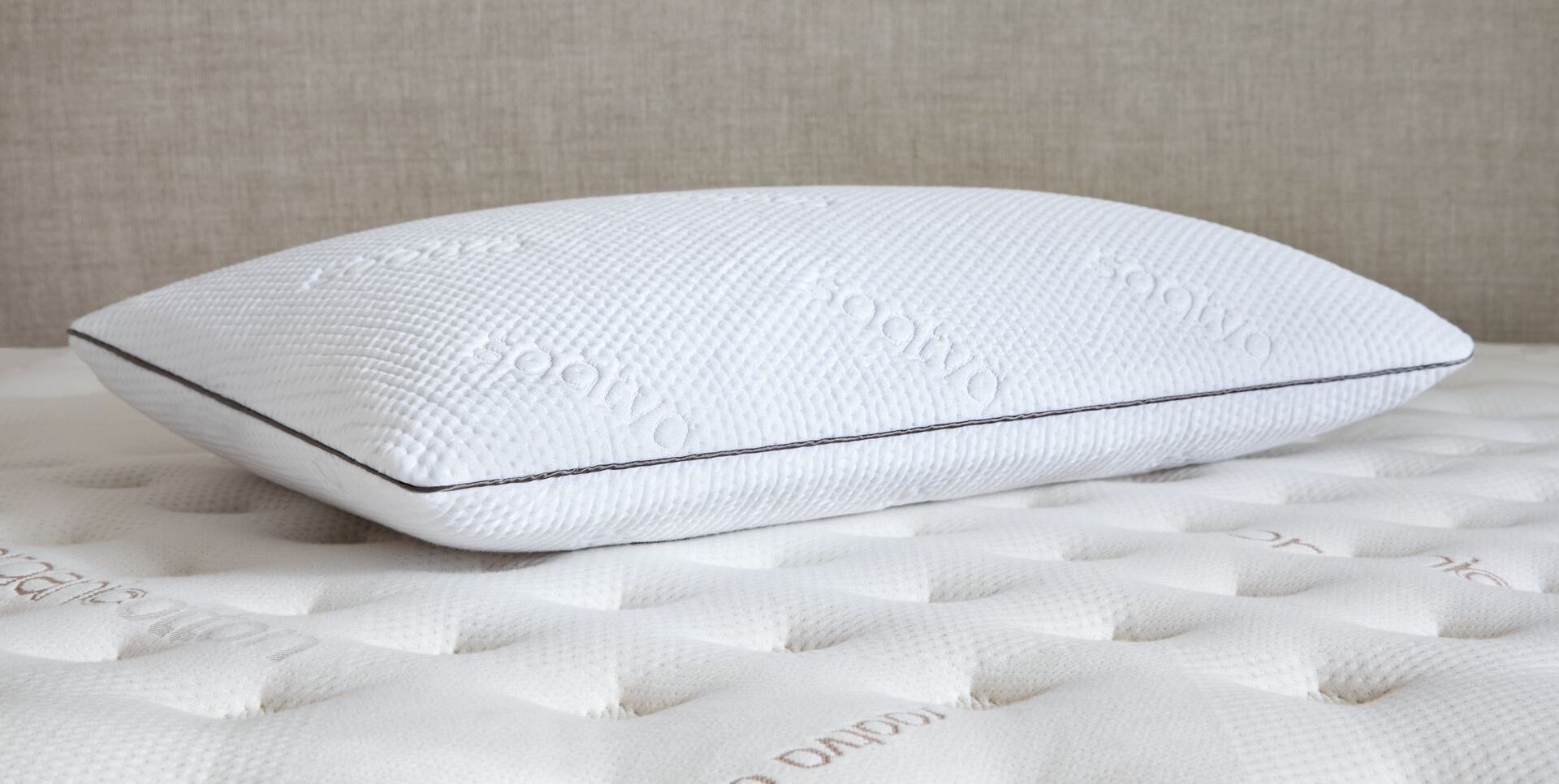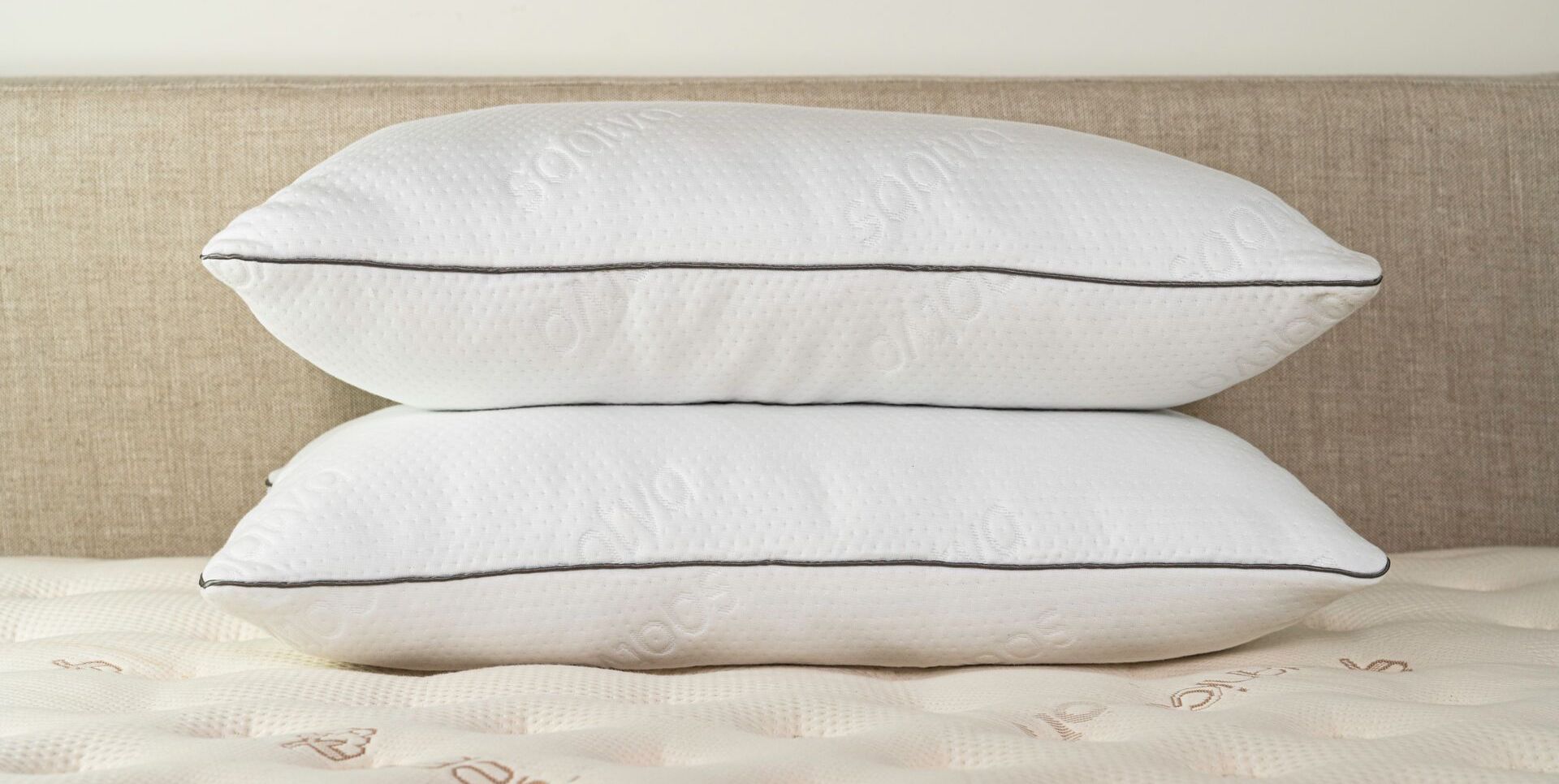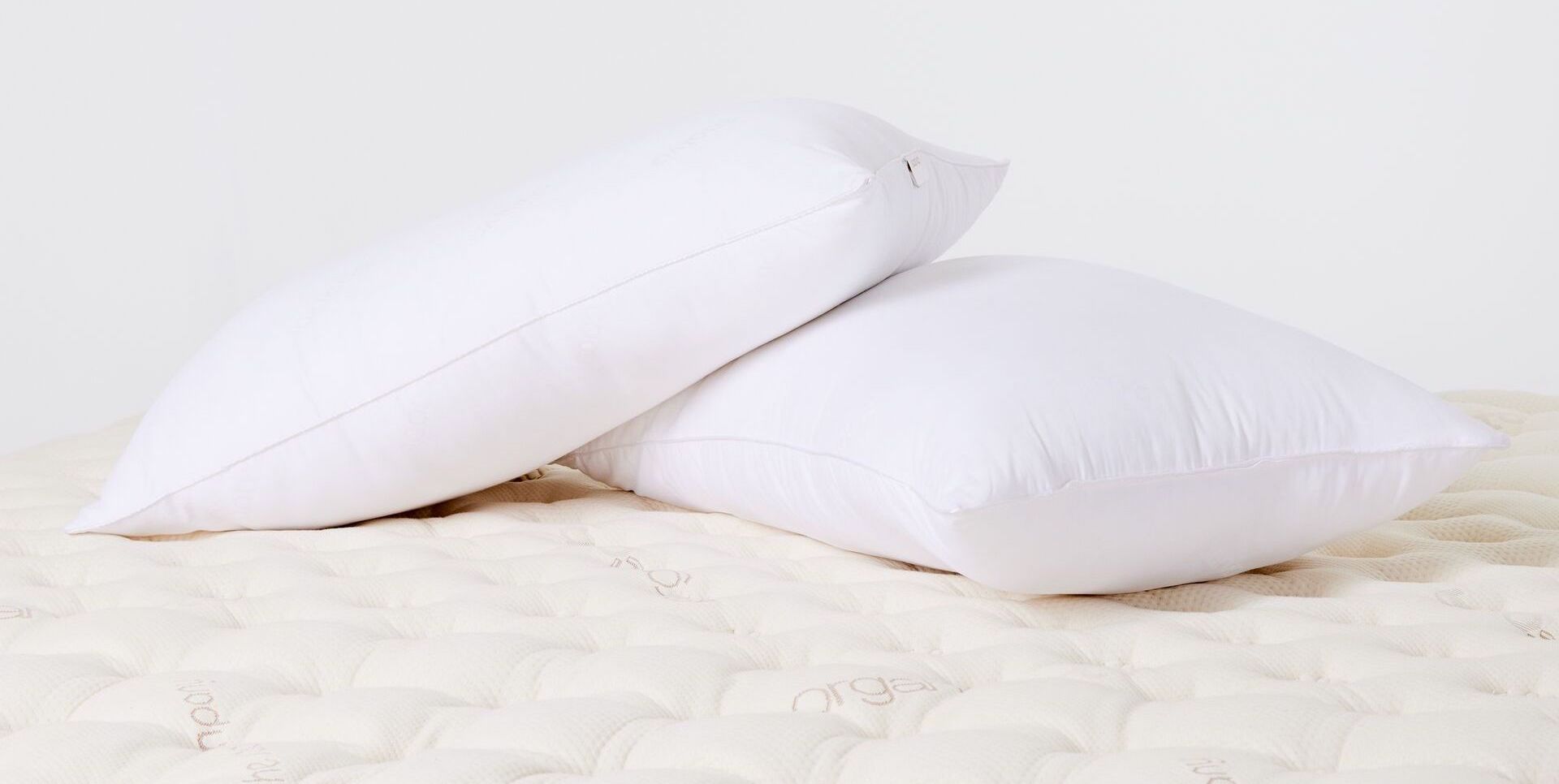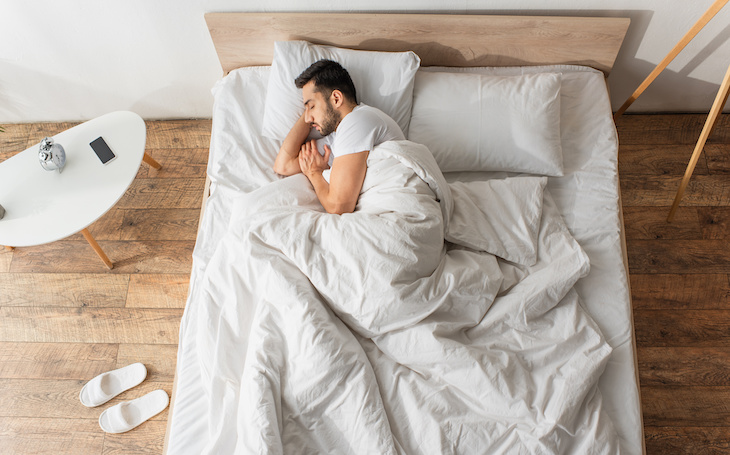Recliners are one of the coziest spots to curl up with a book or binge-watch a beloved series. Some recliners are so comfortable that you might end up taking an unplanned nap—or sleep straight through the night.
But is it bad to sleep in a recliner all night or every night?
Well, sleeping in a recliner might have temporary benefits for some people, but it can also cause some issues. This article will explore everything you need to know about sleeping in a recliner chair to decide whether it’s right for you.
What is a recliner chair?
A recliner chair is an armchair or sofa seat with an inner mechanism that enables it to adjust from upright to reclined.
When activated by a motor, lever, or simple force, the chair’s back lowers while the footrest raises up. Some recliners also have adjustable lumbar support.
Benefits of sleeping in a recliner chair
Sleeping in a recliner may offer temporary relief for people with certain conditions.
However, these benefits don’t outweigh the drawbacks, according to Patrick Nuzzo, a doctor of naprapathy (a holistic specialty that focuses on treating chronic pain) and founder of Southwest University of Naprapathic Medicine.
May relieve heartburn
Limited research has found that head-of-bed elevation can improve symptoms of acid reflux or heartburn. The chair’s angle keeps your upper body elevated if you’re sleeping in a recliner.
Of course, sleeping in a recliner isn’t the only way to elevate your head. An
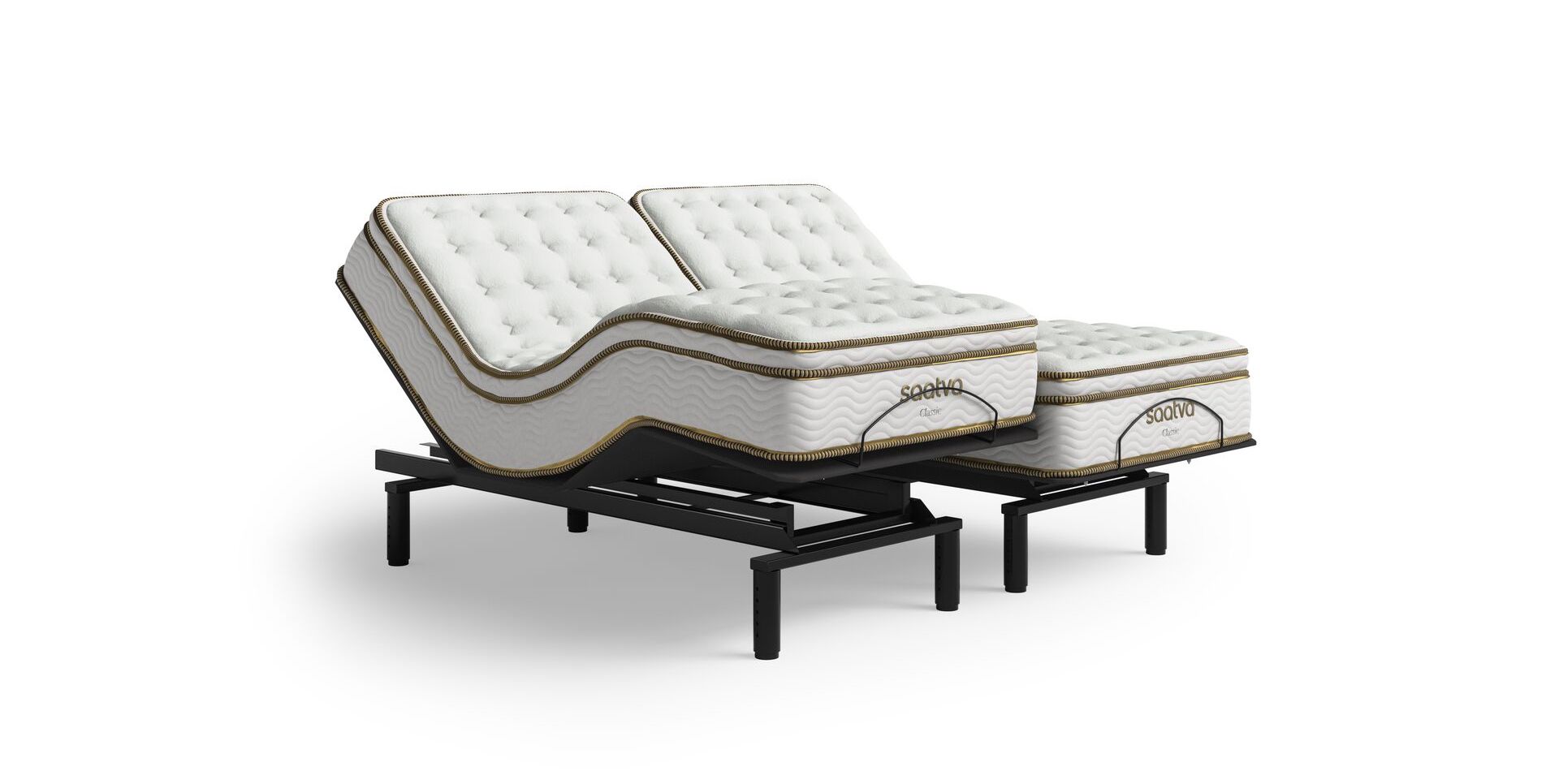
Our deluxe adjustable base with even more customized comfort options
can help soothe heartburn symptoms without the dangers of recliner snoozing.
May improve snoring and sleep apnea
An elevated head position has been known to improve sleep apnea—and apnea-associated snoring—while you snooze.
Because a recliner keeps your upper body elevated, you may feel like sleeping in a recliner chair helps you breathe more easily.
However, you can raise your head with an adjustable bed base or pillows.
May offer support after a back injury
If an injured back has made lying flat impossible or too painful, then sleeping in a recliner for a few nights may help you get much-needed rest.
“However, if you do choose a recliner, as soon as you possibly can, get your body back to the bed and back to sleeping on your back,” says Nuzzo.
Dangers of sleeping in a recliner chair
Sleeping in a recliner once in a while isn’t dangerous. But regularly sleeping in a recliner chair instead of a bed can harm your health.
It may compromise digestion
Nuzzo says sleeping in a recliner chair changes your posture and how your internal organs are supported, which can eventually impact digestion.
Poor circulation to the abdominal area for a long time “could lead to constipation, bowel irritability, and other digestive problems,” he explains.
It may weaken stomach and back muscles
It’s good to move your body into many different positions throughout the day—standing, sitting, bending, and lying prone or flat.
Sleeping in a recliner every night prevents you from practicing your full range of motion. “You develop flaccid muscles in the back and stomach,” Nuzzo warns.
It may worsen joint stiffness and back pain
“Sleeping in a recliner is not good for your body and spine,” says Nuzzo.
That’s because sleeping in a chair restricts nighttime movement, which can make your body feel stiffer and sore in the morning.
It may cause circulation problems
“If you’re not getting good circulation in the body because of an impeded posture by sleeping in a recliner, then your heart is going to work hard to circulate blood,” says Nuzzo.
Impaired circulation can increase the risk of blood clots. And clots that form in the legs can loosen and lodge in the lungs or heart, which may be fatal.
It may cause ankle swelling
“In a recliner, your feet are up a bit, but the head is still higher than the lower body,” says Nuzzo. The result? You may experience swollen ankles or a heavy feeling in your legs.
This is a sign that you need to move around and consider lying flat next time you go to bed.
It may keep you from seeking the treatment you need
Elevating your upper body can provide temporarily relieve acid reflux and back pain.
But Nuzzo says he’s concerned that patients spend too much time treating symptoms instead of working with a healthcare provider to pinpoint and treat the root cause.
“You need to tackle that problem because if you stay in a recliner, you potentially worsen your health,” he adds.
How to make sleeping in a recliner more comfortable
Sometimes, sleeping in a recliner for a night or two is necessary. Maybe your back is injured—or your bedroom is being renovated.
Here’s how to make recliner sleeping more comfortable:
- Recline as far as possible. It’s better for your spine to sleep flat. If sleeping in a recliner is necessary, then you can still support your joints and muscles by reclining the chair as flat as possible.
- Support your neck. A pillow under the neck promotes proper spine alignment, says Nuzzo.
- Put a pillow under your knees. Nuzzo suggests putting a pillow under the knees even when lying flat on a mattress. Adjusting knee support may also improve alignment on a recliner.
- Use a sheet. Sleeping on a leather or synthetic leather recliner can get sweaty. Putting a sheet over the recliner before sleeping helps.
FAQs
Why do some people sleep in a recliner?
Some people sleep in a recliner because the semi-seated position feels more comfortable than lying flat on a bed. In particular, people with heartburn and back injuries may sleep better with their upper body elevated.
Can a recliner be a bed?
A recliner doesn’t offer the same support as a bed. If you’re not able to sleep comfortably in a real bed due to back pain or heartburn, then talk to your healthcare provider.
Is sleeping in a recliner chair bad for you?
Sleeping in a recliner is safe, but it’s not the healthiest place to sleep. That’s because sleeping in a recliner every night doesn’t properly support your body and spine. Over time, this can lead to joint stiffness, poor posture, impaired circulation, and even sluggish digestion.
Is sleeping in a recliner chair bad for your heart?
Sleeping in a recliner doesn’t directly impact your heart, but it’s bad for your circulation. Poor circulation can increase the risk of blood clots, which can cause heart attacks.
Can sleeping in a recliner cause swollen ankles?
Yes, keeping your ankles below your heart all night may contribute to swollen ankles.
Is it better to sleep in a bed or a recliner after hip surgery?
It may be more comfortable to sleep in a recliner for a few days after hip surgery. Ask your surgeon which sleeping positions and locations are best for your body as it heals.
Snoozing on a couch could also be bad for your health. Here’s why you should avoid sleeping on the couch.


